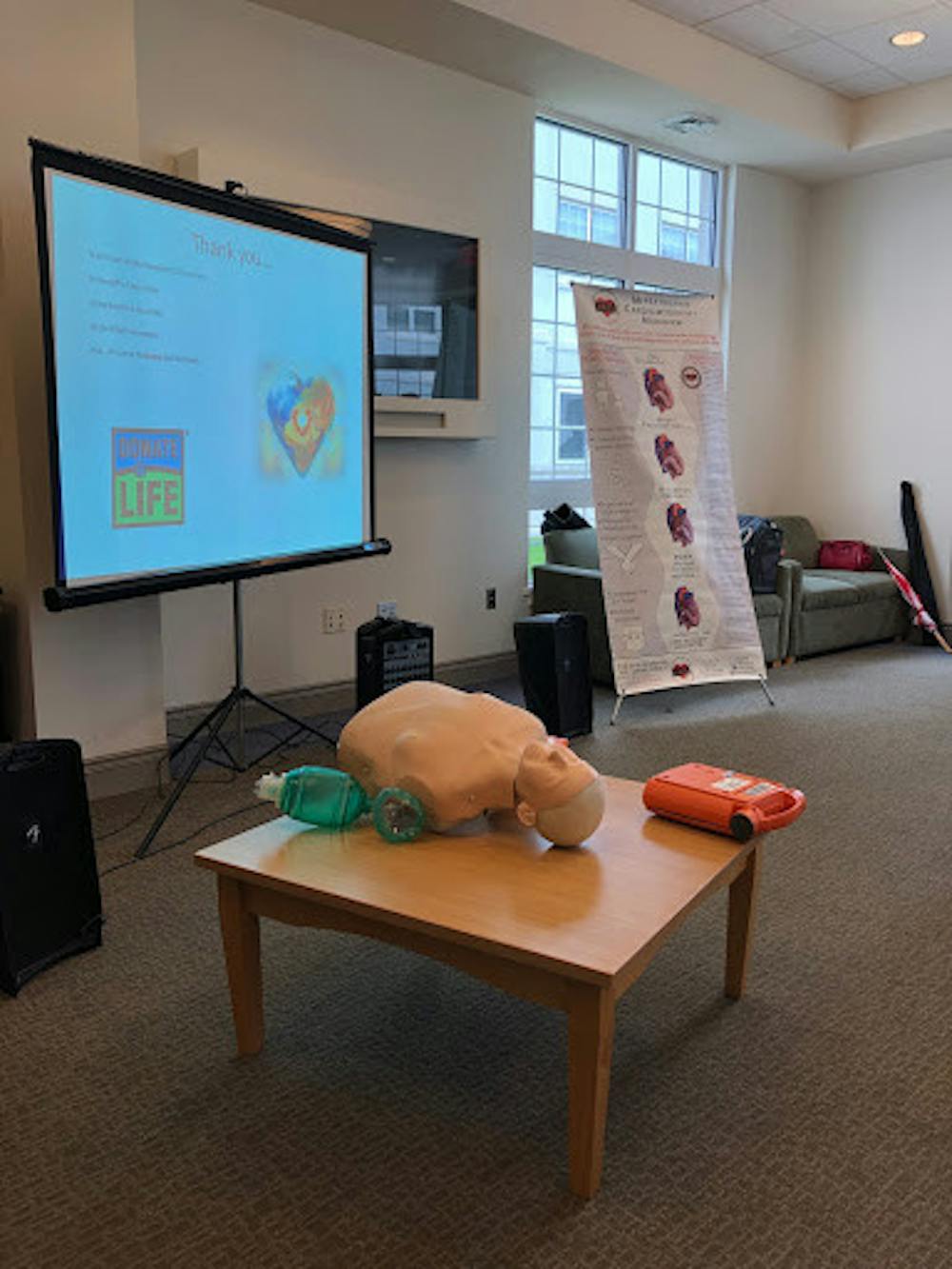By Lara Becker
Reviews Editor
Buddy Fox, a junior music performance and chemistry double major, remembered the comfort of sitting with Jason Zujkowski, who would bring bags of food to the basement of the music building to share with his friends.

There he would sit and listen. Zujkowski was a friend in every sense of the word — in his compassion and empathy for every person around him.
Zujkowski died on Nov. 9, 2018 from cardiac arrest as a result of Hypertrophic Cardiomyopathy. He collapsed in the lobby of the same music building that he spent tireless hours perfecting his craft in.
On May 1 at 1:15 p.m. in the Phelps Hall lounge, it was time for the College to listen.
In collaboration with Phi Mu Alpha Sinfonia, the HCM association and Campus Emergency Medical Services, Fox hosted an HCM talk and training with the intention of educating students, faculty and staff on how to prepare for instances of sudden cardiac arrest, and on HCM in general.
HCM affects one in 500 people in the general population, according to the Hypertrophic Cardiomyopathy Association. Cardiomyopathy is the generalized disease that causes abnormal palpitations of the heart.
“Hypertrophic” is one category of Cardiomyopathy, mainly causing excessive thickening of the heart. As Fox described, this caused Zujkowski severe shortness of breath, fatigue and rapid heartbeats.
“The biggest question that Jason’s death left for us to answer was, ‘What could we have done? What can anyone do?’” Fox said.
He found the answer in Lisa Salberg, the founder and CEO of the HCMA. Salberg was diagnosed with HCM at the age of 12 and suffered a stroke at 21.
Her personal journey and the journeys of many of her family members with HCM made Salberg realize the lack of information and public knowledge of the disease.
Salberg then founded the HCMA in 1996 make people more aware of the disease and provide support for those affected by it. Since the organization’s inception, she has seen significant strides in the public knowledge and response to the disease.
“We’ve changed a lot here,” Salberg said. “We’re starting to see higher levels of referrals to a cardiologist for the EKG, for the CT scan or for whatever else they’re going to need.”
She described the main issue is the fact that many people may have lingering HCM without seeing symptoms right away or being diagnosed by a doctor correctly, which Salberg said is combated by not just education about HCMA, but also legislation.
HCMA has centers throughout the United States, having spearheaded the Student Athlete Protection Act to screen all athletes for HCM during their athletic physicals. The HCMA helped to train doctors to find specific symptoms in students.
In being prepared for a situation of cardiac arrest, Salberg emphasized calling 9-1-1 and getting an AED immediately, due to many similar situations resulting in death when bystanders are unaware of how to react.
The presentation then turned to senior biology major Claire Drotman, an EMT and part of TCNJ EMS. She led demonstrations to help students prepare for situations where CPR and AEDs may be necessary.
“My hope is by the end of this training, if you end up in that situation, you would be able to take action to initiate something and not just wait for the EMT to get there,” Drotman said.
She then demonstrated how to use an AED, how best to do compressions and the ins and outs of CPR.
Through the knowledge that the training provided, Fox hoped students would feel confident enough to act in the case of a cardiac arrest and spread awareness of HCM.
“This means vigilance,” he said. “This means that we have to take action, to ensure the safety of our greater campus community.”







